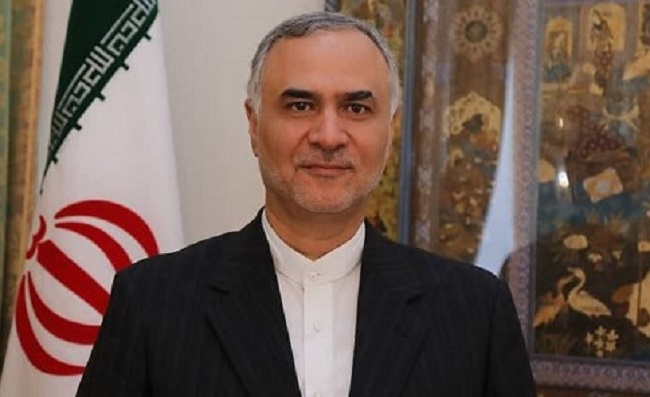The Iranian Government has expressed its readiness to collaborate in developing Nigeria’s oil and gas downstream division.
The Iranian Ambassador to Nigeria, Muhammad Alibak, made this known when he hosted Rep. Ikenga Ugochinyere (PDP-Imo), Chairman, House Committee on Downstream Petroleum and Rep. Aliyu Mustapha (PDP-Kaduna state) in Abuja.
The ambassador explained that the assistance would include in refineries and other related infrastructure.
He said that Iran was ready to support the Nigerian Government in addressing its energy challenges through collaborative investment and cooperation.
The ambassador expressed Iran’s enthusiasm to bolster Nigeria’s oil and gas sector and explore alternative energy sources.
Alibak also aid that areas of collaboration included Compressed Natural Gas (CNG) projects, refinery improvements, petrochemical ventures, and impactful exploration initiatives.
He expressed the unwavering commitment of Iran, exemplified through a Memorandum of Understanding (MoU), previously signed by the former Minister of Petroleum Resources, Mr Timpre Slyva.
The ambassador also highlighted subsequent correspondence from Iran’s current Oil Minister, demonstrating their determination to collaborate closely with Nigeria.
In his remarks, Ugochinyere said that the purpose of their visit was to solidify deeper cooperation based on Iran’s long-standing willingness to contribute to Nigeria’s growth and expansion in the downstream sector.
He said sequel to the enacted Petroleum Industry Act (PlA), “there are many opportunities within the downstream and midstream oil domains.”
The lawmaker sought enhanced investment collaboration with Iran in terms of technology transfer that would fortify the ongoing evolution in the oil and gas sector.
Ugochinyere underscored the significance of refining alternative energy sources, advancing the CNG project, accelerating petrochemical initiatives, and boosting profitable exploration endeavours.
The chairman commended Iran’s successful utilisation of gas resources, leading to widespread connectivity to refined gas and enabling economic growth.
He commended Iran’s resilience in maintaining local petroleum refining and expanding refining capacity even amidst global economic sanctions.
Ugochinyere said that closer collaboration with Iran, a country that successfully overcame challenges including global sanctions, could strengthen Nigeria’s energy security, exploration activities, local refining, and overall industry growth.
The chairman assured that the Nigerian Parliament would vigilantly oversee the implementation of the PlA, ensuring its intentions so upheld with unwavering consistency.
He encouraged Iranian investors and oil companies to capitalise on the transparent and competitive market environment, leveraging the newfound stability in Nigeria’s oil and gas sector and invest heavily.
Also speaking, Mustapha expressed the urgent need for Nigeria to transition from exporting crude materials to refining locally.
“This transformation would pave the way for job creation, forex generation, energy security, and greater economic stability.
“This is further made possible given the removal of subsidies and the resulting volatility of Nigeria’s oil and gas sector and the potential opportunities presented by the PIA,” he said.









